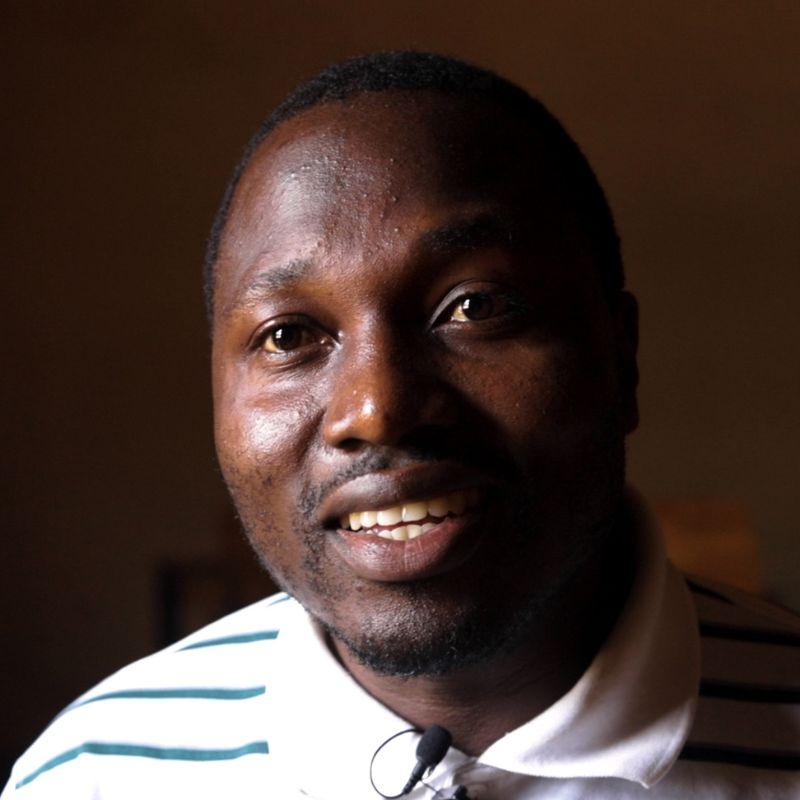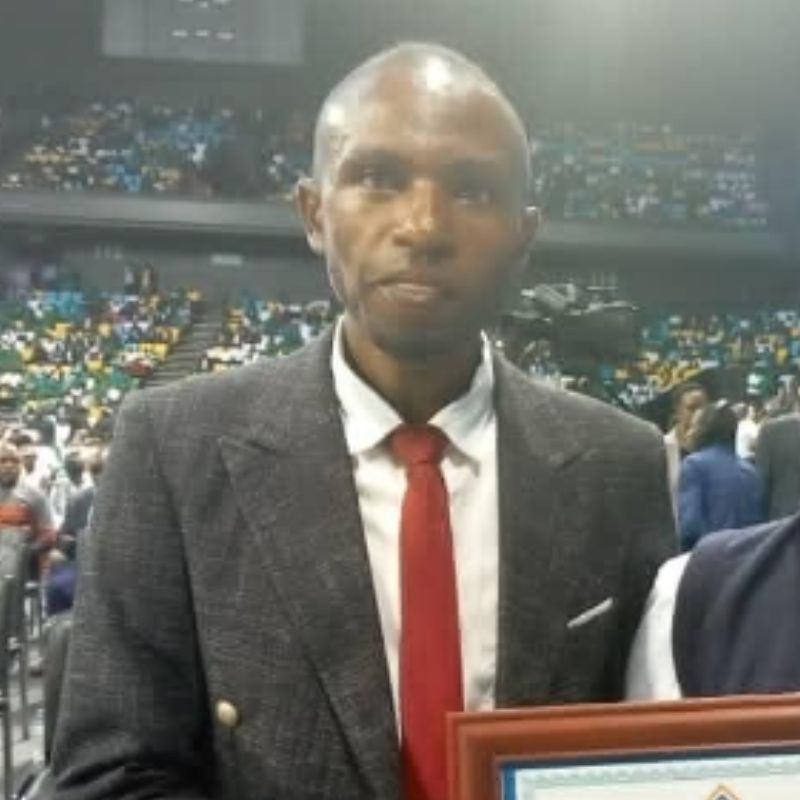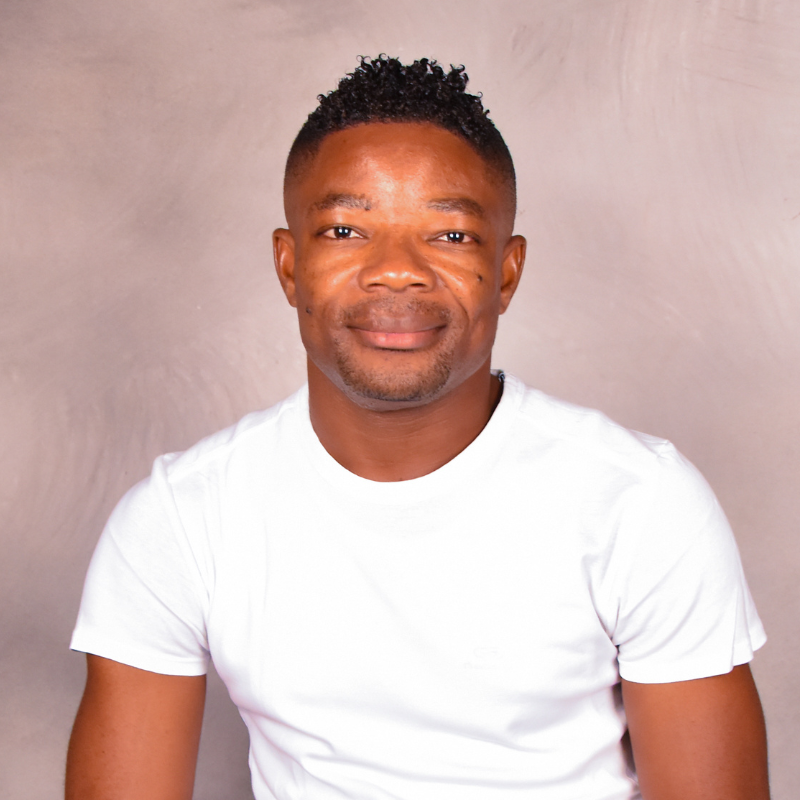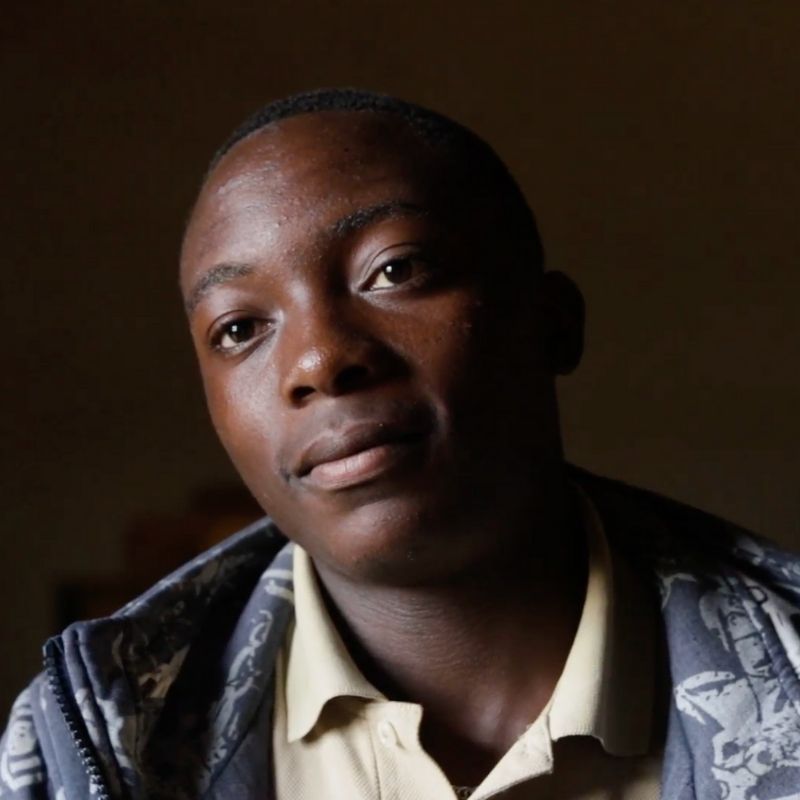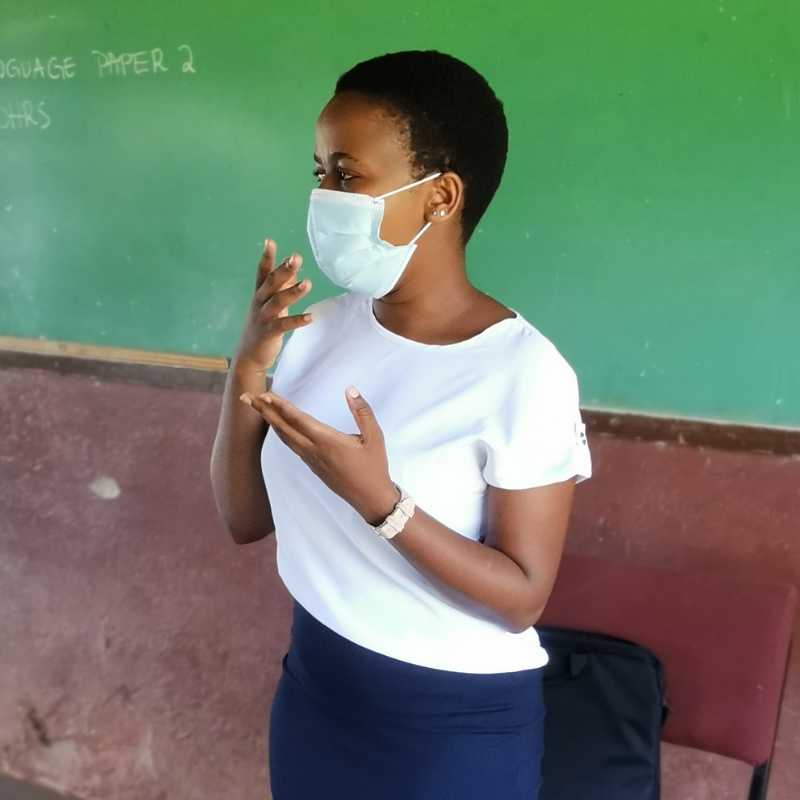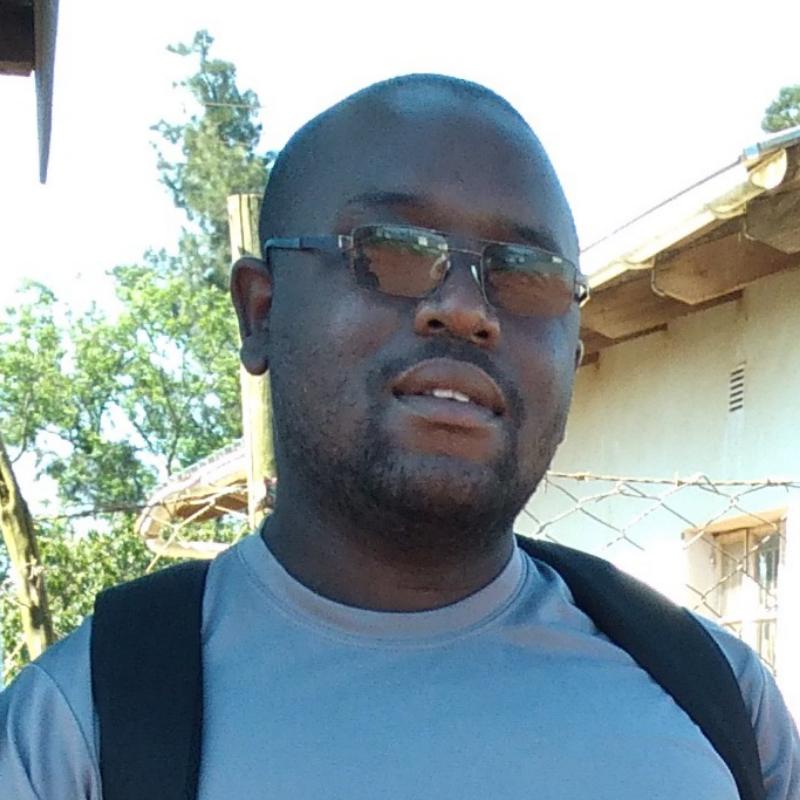Berger Badere, teacher in Malawi
Share
“Education is one of the needs of this community. After I was trained, I thought about contributing in a way to fill that gap because there are many people who want to be trained. And since I have the knowledge, I just have to share it with them.”
“My name is Berger Badere. I am a facilitator here at the digital lab working with the Jesuit Refugee Service. I am of Congolese nationality. I come from the Democratic Republic of Congo in the province of South Kivu. I have been here since 2013.” This is how Berger, a ProFuturo teacher at the Dzaleka refugee camp in Malawi, introduces himself.
Berger is confident that his knowledge and speaking skills are key to making a positive impact on his community and on children in need of development through education. “Education is one of the needs of this community. After I was trained, I thought about contributing in a way to fill that gap because there are many people who want to be trained. And since I have the knowledge, I just have to share it with them,” he says.
Educational challenges
While teaching is Berger’s passion, the Congolese teacher in Malawi admits that the process is often complicated by the circumstances of individual students in the Dzaleka refugee camp. “The biggest challenge is that these children have different levels. Some can read, others cannot read. There are even some who can’t even write their own names”.
In the face of this problem, Berger has found in digital education and technology a source of motivation for his students and a way to overcome obstacles in complex educational situations such as humanitarian contexts. “Technology has been a great help. As I can say, this class is a digital class in which we only use technology. It is much better than a class where we use a blackboard and chalk. This is different.”
Learning and teaching as a driving force for teachers
Tablets, digital content and new learning methodologies are a source of teacher-student connection, according to Berger. “I think students are very motivated with tablets because, firstly, they like to play with them and, secondly, they think that learning with the tablet is much better than coming with a notebook and writing”.
However, Berger admits that without proper teacher training, this process based on digital education would not be possible. “Capacity building is one of the most beautiful things for workers. You can’t be perfect and you can’t work well if you don’t know how to do it. So I think these trainings are very important because they show us how we should work.”
Our work in Malawi
ProFuturo began working in Malawi in September 2019. Since then we’ve implemented our digital education programme at the Dzaleka refugee camp, about 40 kilometres from the capital. The camp hosts around 54,000 people, more than half of whom are children and young people, mostly from the neighbouring Democratic Republic of the Congo.
In partnership with Entreculturas and the Jesuit Refugee Service (JRS) we aim to ensure quality education and a safe learning environment at the only primary school in this refugee camp. Guaranteeing the educational continuity of children aged between 9 and 12 in this emergency situation is our main objective.



